Turkey Tail (Trametes versicolor) is one of the most widely studied medicinal mushrooms, known for its colourful, fan-shaped appearance and long history of traditional use. While it is generally considered safe as a wholefood supplement, it’s still important to understand potential side effects and situations where caution is advised.
General Safety
Turkey Tail has been consumed for centuries in traditional Chinese and Japanese practices, usually as a tea or powder. Modern research has examined compounds in the mushroom such as polysaccharopeptides (PSP) and polysaccharide-K (PSK), which are thought to contribute to its functional properties.
For most healthy adults, Turkey Tail is well tolerated when taken in recommended amounts. However, as with any natural supplement, there are potential side effects to be aware of.
Possible Side Effects
1. Digestive Upset
Some people may experience mild digestive issues such as:
-
Gas or bloating
-
Diarrhoea or loose stools
-
Darkened stools (harmless but can be surprising)
These effects are usually temporary and may ease as the body adjusts.
2. Allergic Reactions
Although uncommon, allergic reactions are possible. Symptoms may include skin rashes, itching, or respiratory irritation. If this occurs, discontinue use immediately and seek advice from a healthcare professional.
3. Medication Interactions
Turkey Tail contains compounds that may influence the immune system. This means it could theoretically interact with:
-
Immunosuppressant medications (used in autoimmune conditions or after organ transplants)
-
Chemotherapy or radiation therapy (Turkey Tail is sometimes used alongside cancer treatments in some countries, but always under medical supervision)
4. Pre-existing Conditions
People with certain health conditions should use caution. This includes individuals with autoimmune disorders, bleeding disorders, or those scheduled for surgery.
Turkey Tail and Blood Thinners
Turkey Tail contains naturally occurring compounds such as polysaccharides and phenols that may have a mild effect on blood clotting. While the scientific evidence is still limited, some sources suggest functional mushrooms, including Turkey Tail, could potentially enhance the effects of anticoagulant or antiplatelet medications.
This means people taking blood-thinning medicines like:
-
Warfarin (Coumadin)
-
Heparin
-
Aspirin (in higher or daily doses)
-
Clopidogrel (Plavix)
-
Or newer anticoagulants (e.g. apixaban, rivaroxaban)
should exercise caution. Combining Turkey Tail with these drugs may increase the risk of bruising or bleeding.
Who Should Avoid or Take Extra Care
-
Pregnant and breastfeeding women: Safety has not been established.
-
Children: Should only use Turkey Tail under the guidance of a healthcare professional.
-
Anyone on prescription medications: Always check with a doctor before introducing functional mushrooms.
How to Minimise Side Effects
-
Start with a small serving and gradually increase.
-
Choose a high-quality, certified organic product that has been third-party tested.
-
Take with food to reduce the chance of digestive upset.
-
Monitor your body’s response and adjust accordingly.
Turkey Tail mushroom has been valued for centuries and is generally well tolerated by most people. However, as with all functional foods, it is not suitable for everyone. By being aware of potential side effects and using it thoughtfully, you can decide whether it is the right addition to your lifestyle.
Australian Grown Turkey Tail CapsulesA powerful supplement for your health and wellness. Order Now |
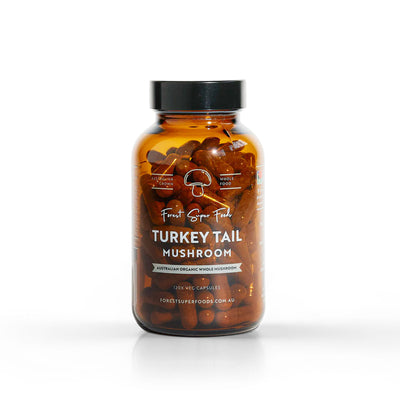
|
Frequently Asked Questions
What does Turkey Tail mushroom do for you?
Turkey Tail mushroom supports gut, immune function and is also known for its antioxidant and anti-inflammatory properties. It is a great choice for overall wellness and gut health.
Is Lion's Mane or Turkey Tail better?
They both serve different purposes. Lion's Mane is best known for brain health and cognitive support, while Turkey Tail is prized for immune and gut support. Many people take both for a well-rounded approach to wellbeing.
Who should not take Turkey Tail?
Anyone with mushroom allergies, autoimmune conditions, or who is pregnant or breastfeeding should consult a healthcare provider before taking Turkey Tail. If you're on immunosuppressants or undergoing treatment, always speak to your doctor first.
Is Turkey Tail hard on the liver?
Conversely, Turkey Tail mushrooms seem to protect the liver and improve gut health. There's some evidence that Turkey Tail mushrooms reduce liver inflammation and support its wellness.



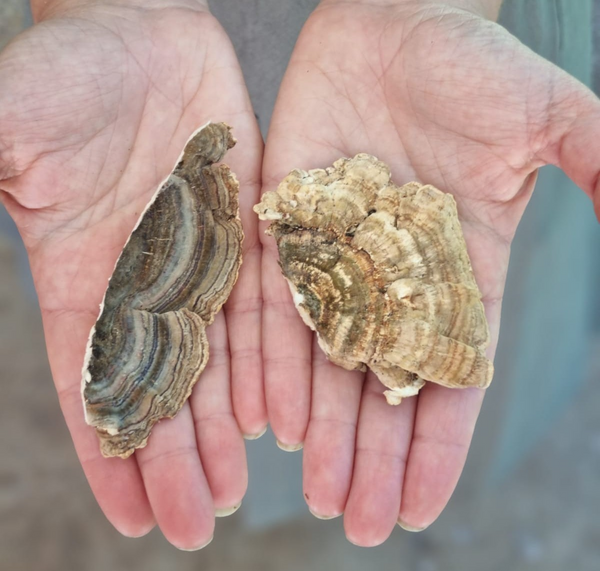

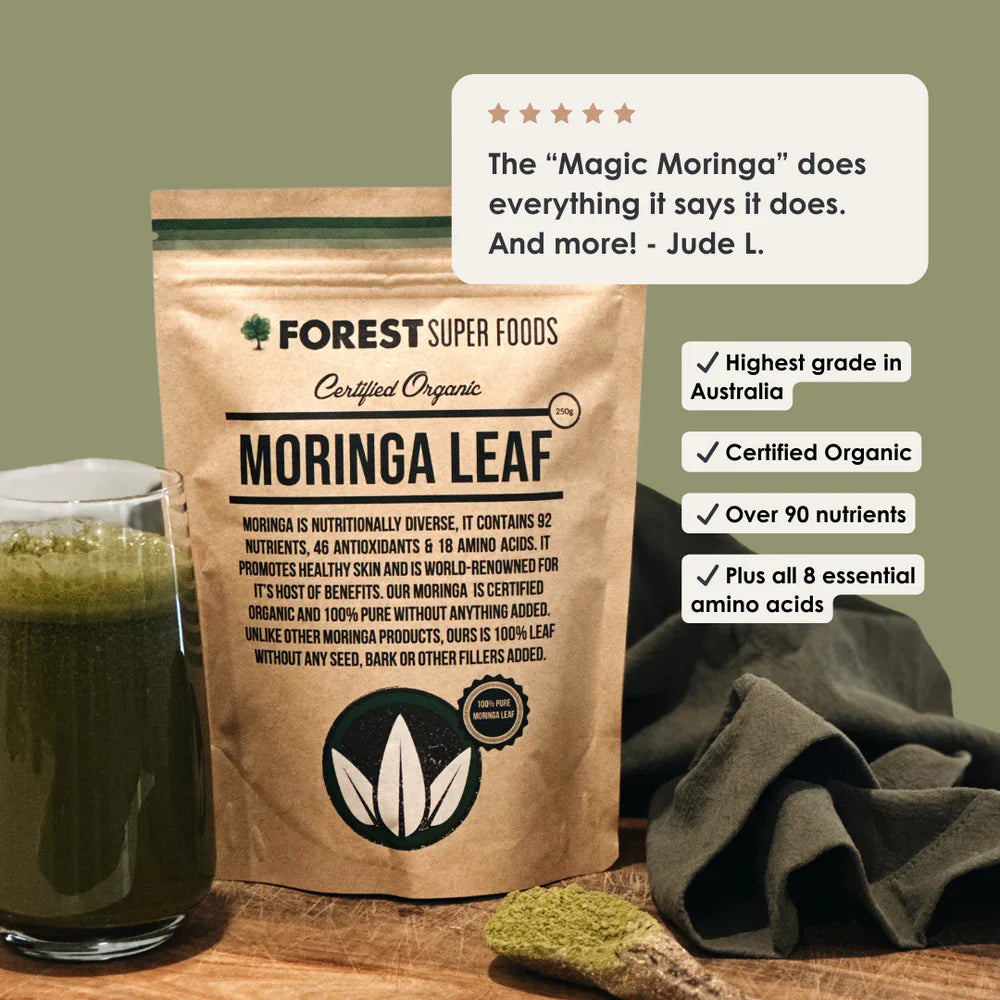
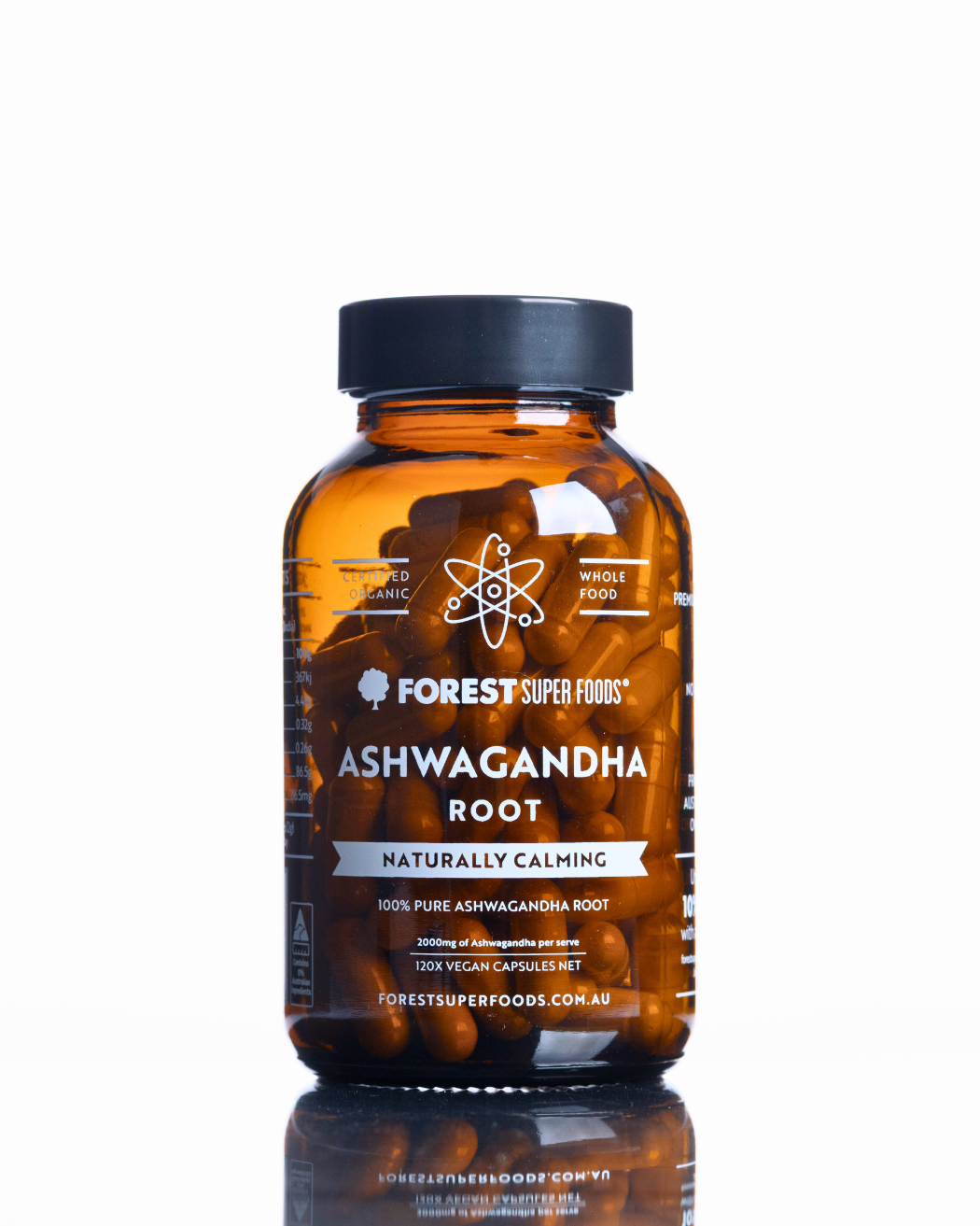
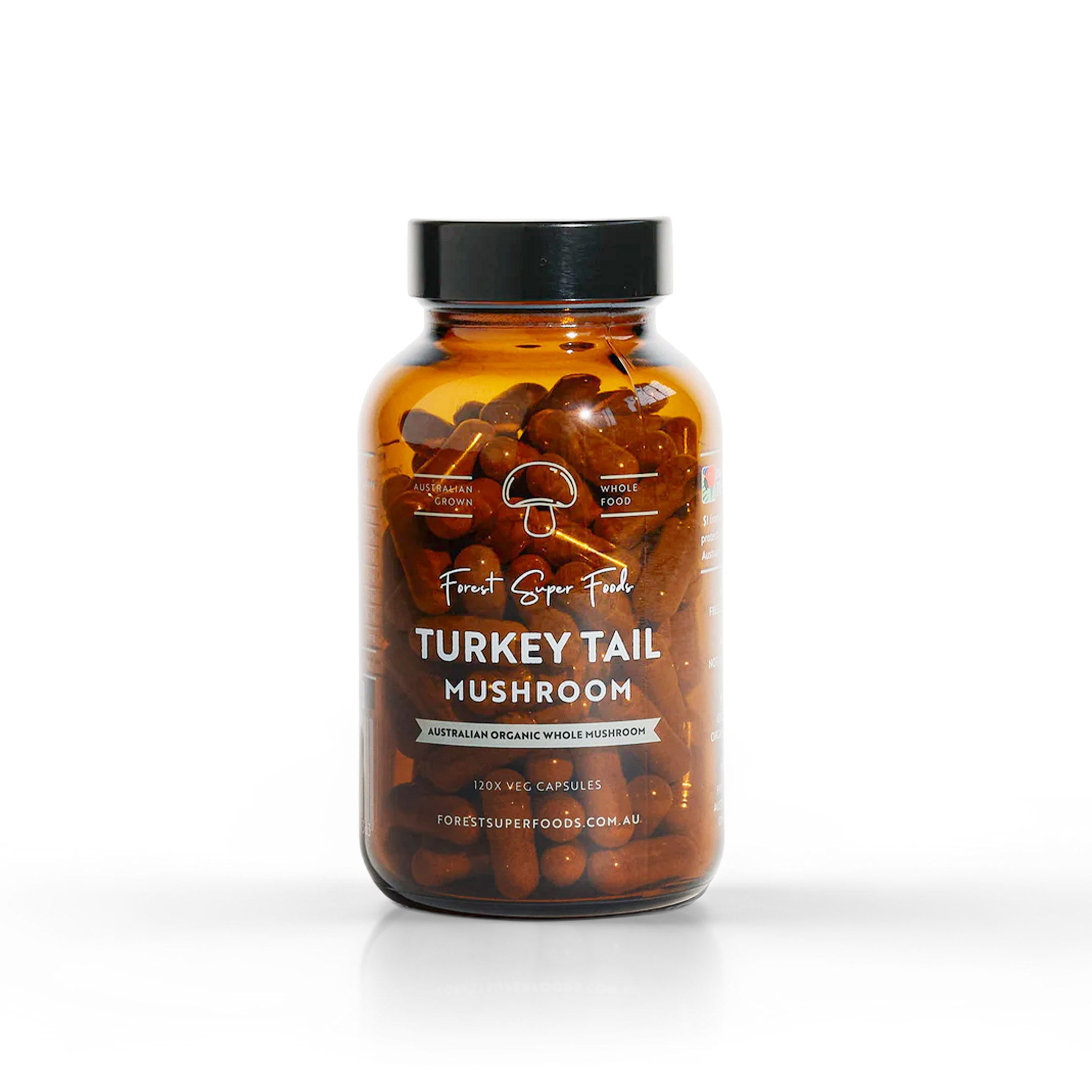
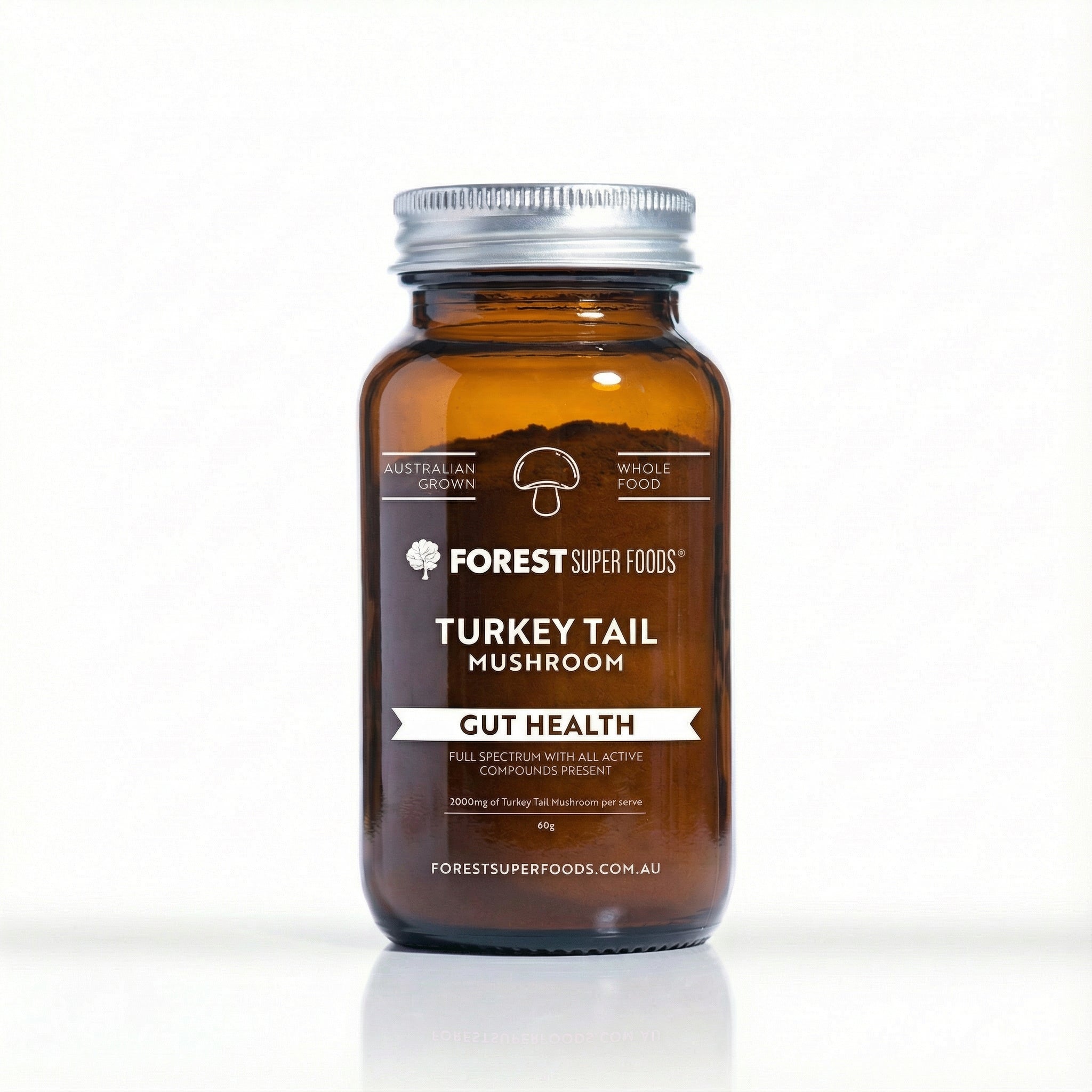
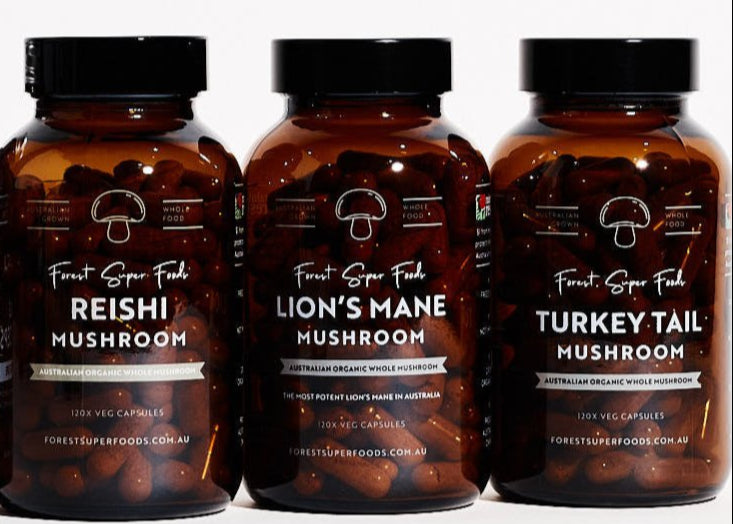
Leave a comment
All comments are moderated before being published.
This site is protected by hCaptcha and the hCaptcha Privacy Policy and Terms of Service apply.